Foxes are fascinating creatures, known for their resourcefulness and adaptability. While their diet primarily consists of small mammals and insects, it’s evident that these canids are opportunists, ready to incorporate a variety of foods into their meals. This article delves deep into the intriguing question of whether foxes consume apples, along with the reasons behind fruit consumption, the benefits fruits may provide, and the implications for ecosystems and agriculture. By analyzing the dietary habits of both wild and urban foxes, we uncover surprising insights into the world of these elusive animals and their relationship with fruits, particularly apples.
Foxes in the wild
Fox Habitat and Diet
Foxes have a wide variety of habitats ranging from grasslands, forests, and deserts to more urban environments. Their diet can include small mammals, birds, insects, fruit, and even carrion.
Fox Hunting and Foraging
Foxes have excellent senses of smell, hearing, and vision, making them highly effective when hunting. They are stealthy and agile, often foraging for food during the night and taking advantage of their nocturnal prey species. Foxes will consume apples and other fruits to supplement their diet when other food sources are scarce.
The Relationship Between Foxes and Apples
When foxes encounter apples in their environment, they may consume them as a natural source of sugar that provides energy. Eating fruits and other plant materials can supplement their diet, especially when other food sources are limited. Foxes can help control the population of apples and other fruits in wooded areas and gardens, while their hunting of rodents keeps those populations in check. However, it is important to remember that foxes are wild animals and should not be intentionally fed by humans.
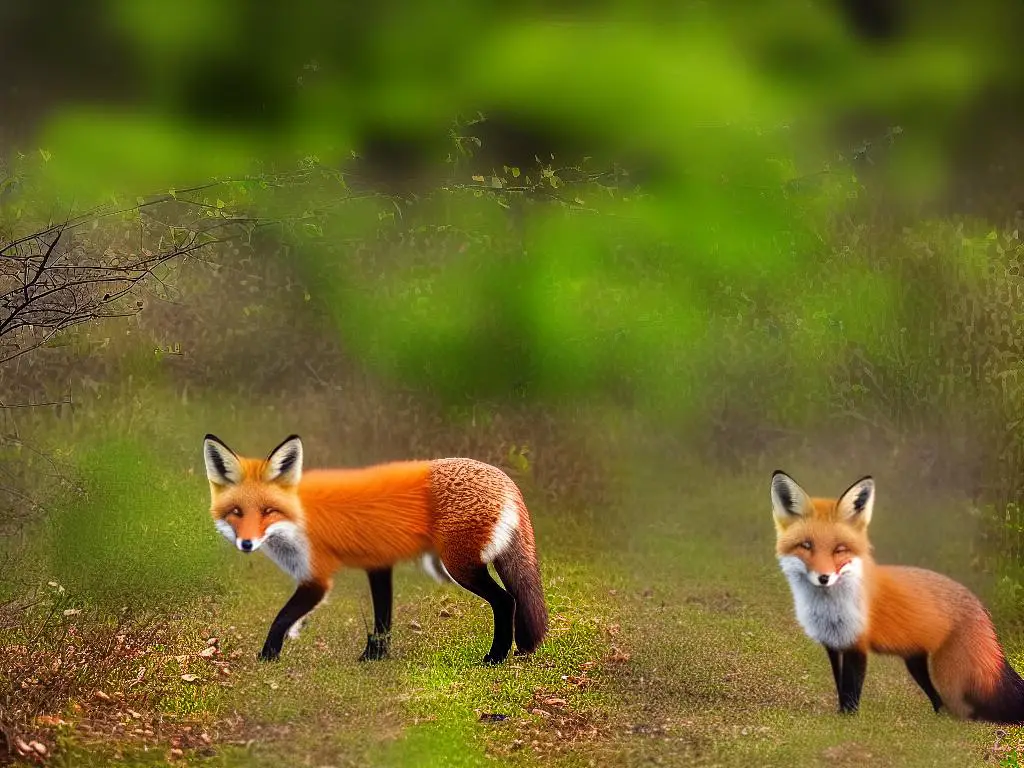
Foxes and fruit consumption
Contrary to the common assumption that foxes are strict carnivores, they are in fact omnivores, meaning they consume both animal and plant-based foods. Their diverse diet can include fruits such as apples, which they will eat when other food sources are scarce or unavailable. Foxes are adaptable creatures who often consume whatever they can find in their environment. This may include fruits and berries along with insects, rodents, and other small animals.
There are several reasons why foxes may consume fruits, such as apples. First, fruits provide a beneficial source of vitamins, minerals, and dietary fiber, which can help improve foxes’ overall health. The natural sugars found in fruits, such as fructose, can also offer a quick source of energy for these agile and active animals. Additionally, fruits are generally easier to catch and consume compared to their more elusive prey, such as rodents, birds, and rabbits.
During the autumn months, when food becomes scarcer and they need to store up energy for the winter, apples might be particularly appealing to foxes. In areas where apple trees are abundant, foxes may help themselves to the fallen fruit on the ground. Although apples may not be a staple in their daily diet, they can still provide a nourishing meal in times of need. This is particularly true for urban foxes, who have adapted to a varied diet that includes food waste and garden produce, as well as their natural prey.
Aside from apples, foxes may consume many other types of fruits like berries, cherries, plums, grapes, and other wild fruits native to their area. They have been observed to favor berries, particularly in the summer months when they are readily available. These fruits provide necessary nutrients for survival, as well as hydration, especially in warmer months. It is worth noting, however, that the more natural diet of a fox would still comprise a higher proportion of animal protein than plant-based food.
While some may find it surprising that foxes, which appear as carnivorous animals, consume apples and other fruits, it is quite common in the world of wildlife. This affinity for a varied and adaptive diet demonstrates the fox’s resourcefulness and ability to thrive in diverse conditions. So when you witness a fox nibbling on an apple, remember that these captivating creatures have the capacity to astonish us with their dynamic and flexible eating habits.
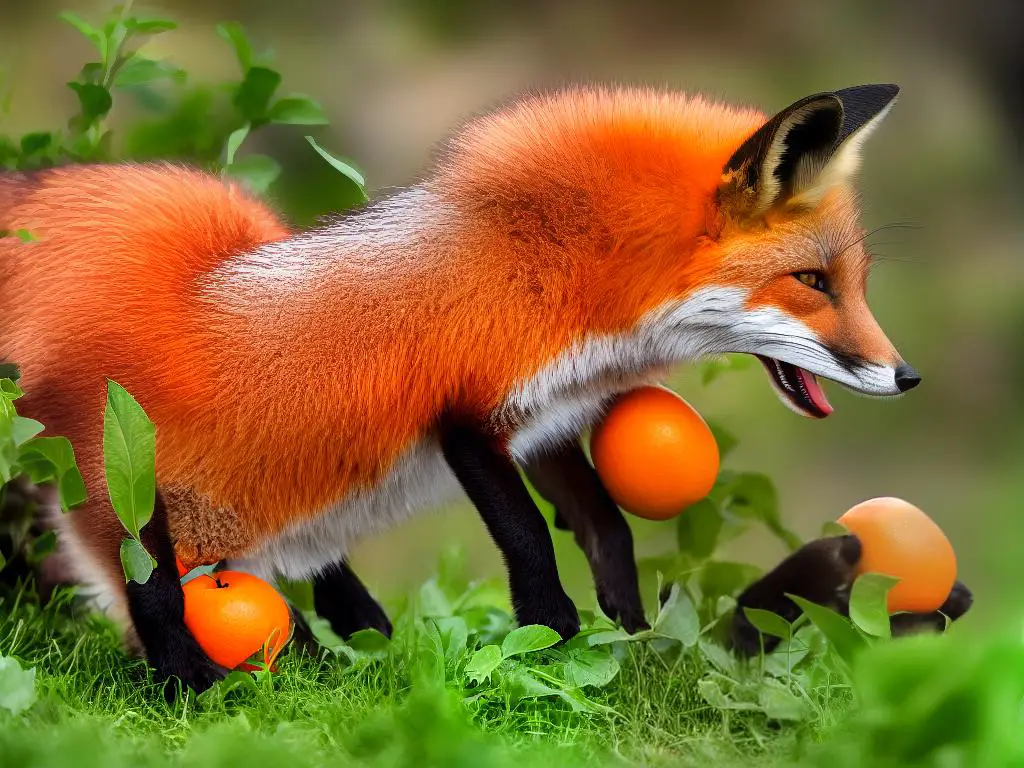
Nutritional benefits for foxes
Apples, a universally favored fruit, are not only relished by humans but also by various wildlife species, including foxes. Despite being primarily thought of as carnivorous animals, foxes are actually omnivores, allowing them to consume plant-based foods as well. Consequently, it’s not unusual for foxes to incorporate fruits, such as apples, into their diet, further showcasing their diverse and adaptable eating habits.
Fruits, like apples, are rich in essential nutrients such as vitamins, minerals, fiber, and natural sugars. Apples, specifically, are a good source of vitamin C, which can help support a healthy immune system for foxes. Additionally, the fiber content in these fruits assists with maintaining proper digestion and also helps keep foxes feeling full, thereby preventing overeating. While fruits should not replace the animal-based proteins that form the predominant portion of a fox’s diet, they can function as a healthy supplement.Incorporating fruits into a fox’s diet can offer numerous benefits, some of which may relate to their antioxidant properties. Antioxidants help counteract the effects of free radicals, which are known to cause cellular damage and inflammation. Given that foxes are prone to various infections and diseases, the antioxidants present in apples and other fruits could potentially support their health and improve their resilience against illnesses and infections.Moreover, a varied and balanced diet not only provides essential nutrients but also keeps a fox’s eating behavior more closely aligned with its natural instincts. In the wild, these creatures typically consume a wide array of foods, including small mammals, insects, birds, invertebrates, and various vegetation. By mimicking this varied diet in captivity or when providing supplemental food for wild foxes, it is possible to enhance their overall well-being and promote a greater sense of satisfaction.Although not a staple in a fox’s diet, apples and other fruits can contribute positively to their health and welfare. Ensuring that a fox consumes a well-rounded diet, inclusive of both animal-based proteins and plant-based items, is vital for maintaining optimal health and longevity. As opportunistic feeders, foxes can benefit from these added nutritional components, and indulging in fruits like apples can be both an enjoyable and beneficial part of their diet.
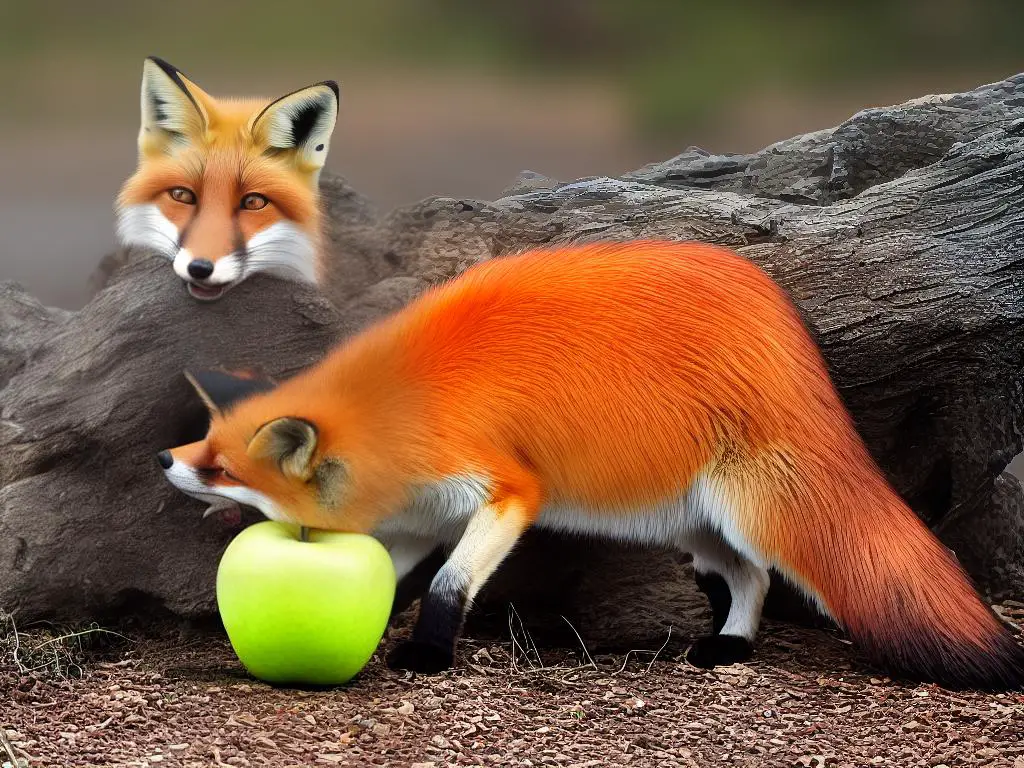
Urban foxes and scavenging
Urban foxes, which belong to the same species as their rural counterparts, often exhibit different dietary habits. While rural foxes generally maintain a carnivorous diet consisting of small mammals, birds, and insects, urban foxes have adapted to living alongside humans and frequently scavenge for food in residential areas. This adaptation leads to a more varied diet, which often includes fruits, vegetables, and even human leftovers. Consequently, it is not uncommon for urban foxes to consume apples and other fruits as part of their diverse dietary intake.
A significant factor that influences urban foxes’ dietary habits is the abundance of food available in human-inhabited areas. People often discard leftovers and waste, making it an appealing and easily accessible source of food for foxes. Not to mention, gardens and parks in urban settings can provide a wide range of fruits, including apples, for these adaptable creatures to feast upon.
Apples and other fruits are not a natural part of a fox’s diet, but urban foxes are known to consume them when the opportunity arises. Their ability to digest a wide variety of foods makes it easier for them to thrive in different environments, including city landscapes. Additionally, foxes have a keen sense of smell which allows them to detect fruits at a distance. So, when apples or similar fruits are available in nearby gardens or streets, foxes are likely to be drawn to them.
Besides apples, urban foxes often consume other fruits and vegetables found in human-inhabited areas. They have been known to eat berries, grapes, plums, and even domestic fruits like bananas. While their high adaptability may seem beneficial, this scavenging behavior can sometimes pose a problem for both the foxes and humans alike. Foxes that rely too heavily on human leftovers can become malnourished, while homeowners may worry about the damage foxes can cause in their gardens and the potential spread of diseases.
In summary, apples and other fruits are not typically part of a fox’s natural diet; however, due to their adaptable nature and foraging behavior, urban foxes may eat them when readily available. This flexible dietary habit allows them to capitalize on resources found in human-populated areas, but raises concerns about the health and safety of both the foxes and the communities they inhabit. In light of the ongoing intersection between modern society and the natural world, understanding these relationships is essential for fostering effective coexistence.
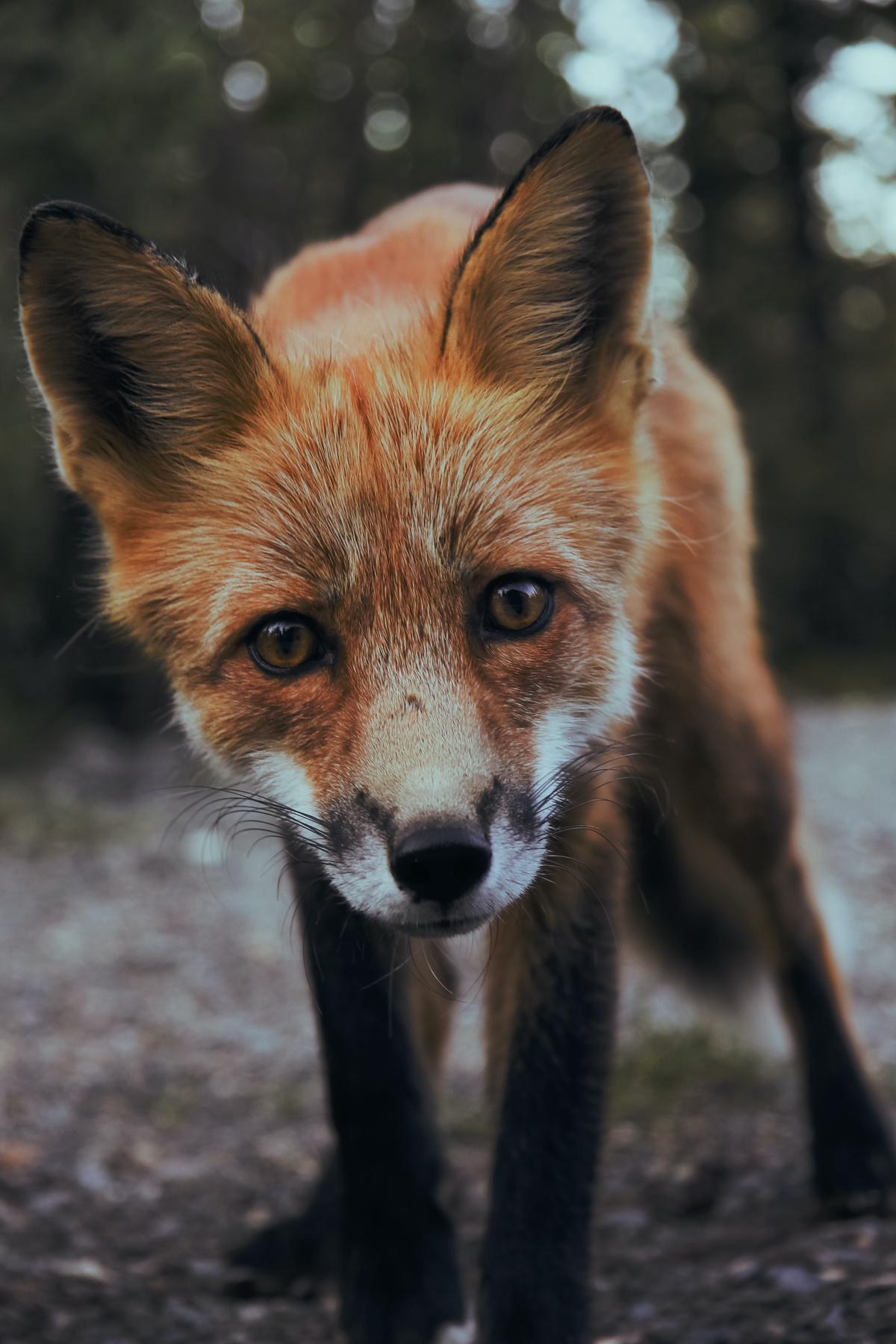
Impact on ecosystems and agriculture
Given the well-known opportunistic feeding tendencies of foxes, they have successfully adapted to various environments. Their diets mainly consist of small mammals, birds, and insects, but they also consume fruits and vegetables, including apples. To evaluate the impact of foxes eating apples on ecosystems and agriculture, it is crucial to understand the role they play in pest control and any potential damage they might cause to fruit crops.
As omnivores, foxes have the potential to contribute positively to agricultural ecosystems, particularly when it comes to pest control. By consuming small mammals like voles, rabbits, and mice, foxes help keep these populations in check, preventing the potential destruction caused by excessive grazing and burrowing of these animals on agricultural lands. As a result, foxes consuming small mammals could indirectly assist in preserving apple crops by targeting pests that are detrimental to the plants themselves. Additionally, a healthy natural predator population, like foxes, serves to maintain a balance within the ecosystem, allowing various species to coexist and thrive.On the other hand, there is a concern that foxes could do damage to fruit crops by foraging and consuming apples and other fruits in the agricultural landscape. A hungry fox, unable to find a more desirable meal, may turn to eating apples directly off trees or from the ground. This can pose a risk to the overall yield of apple crops and potentially reduce the income farmers can generate from their produce. Furthermore, a high density of foxes in an area could lead to significant crop damage, disrupting the delicate balance in the local ecosystem.However, it is important to note that the potential damage caused by foxes eating apples is likely minimal in comparison to the positive impacts they have as natural predators. Research indicates that foxes have a preference for meat and insects, with fruits like apples only making up a small percentage of their overall diet. Therefore, while foxes may occasionally consume apples, it is unlikely to have a significant impact on apple crop yields, particularly when weighed against the benefits foxes provide in terms of pest control.In conclusion, while the consumption of apples by foxes may pose a risk to fruit crops, it is essential to consider the broader ecosystem and the role these animals play in pest control. Balancing the need to protect apple crops with the importance of maintaining a diverse and functional ecosystem is critical in ensuring that the relationship between foxes and apple agriculture remains mutually beneficial.
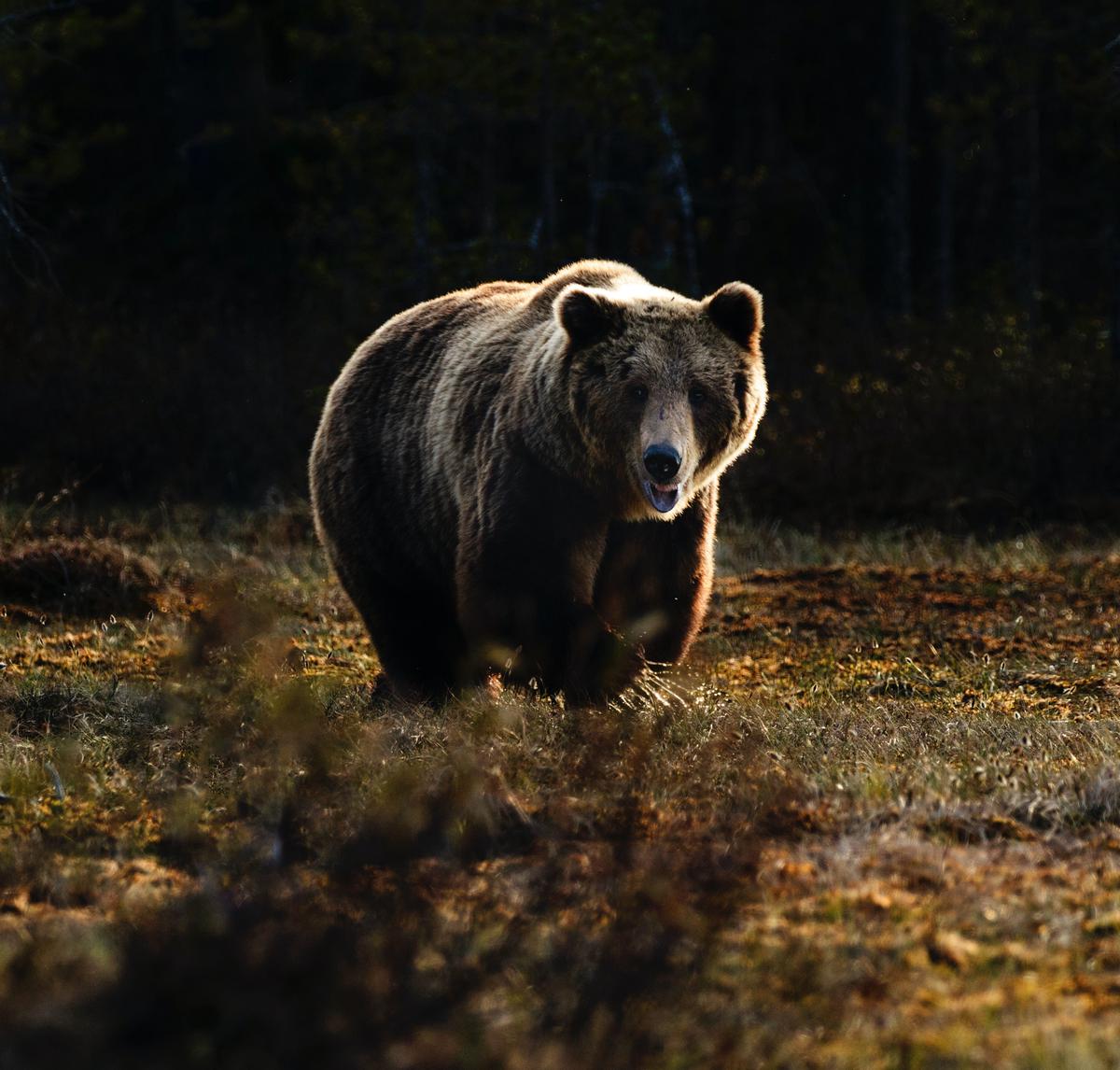
Photo by zmachacek on Unsplash
Overall, it’s clear that foxes are capable of consuming apples, as well as other fruits, contributing to their diverse and opportunistic dietary behaviors. Our exploration into their fruit consumption reveals potential benefits to their health and well-being, while also hinting at the flexibility of foxes as they navigate their environments – from the wild to urban areas. Furthermore, understanding the relationship between foxes, apples, and other fruits allows us to gain a more comprehensive view of their potential impact on surrounding ecosystems and agriculture. This knowledge may ultimately aid in fostering a greater appreciation for these clever creatures and inform decisions on managing their presence in a harmonious way.